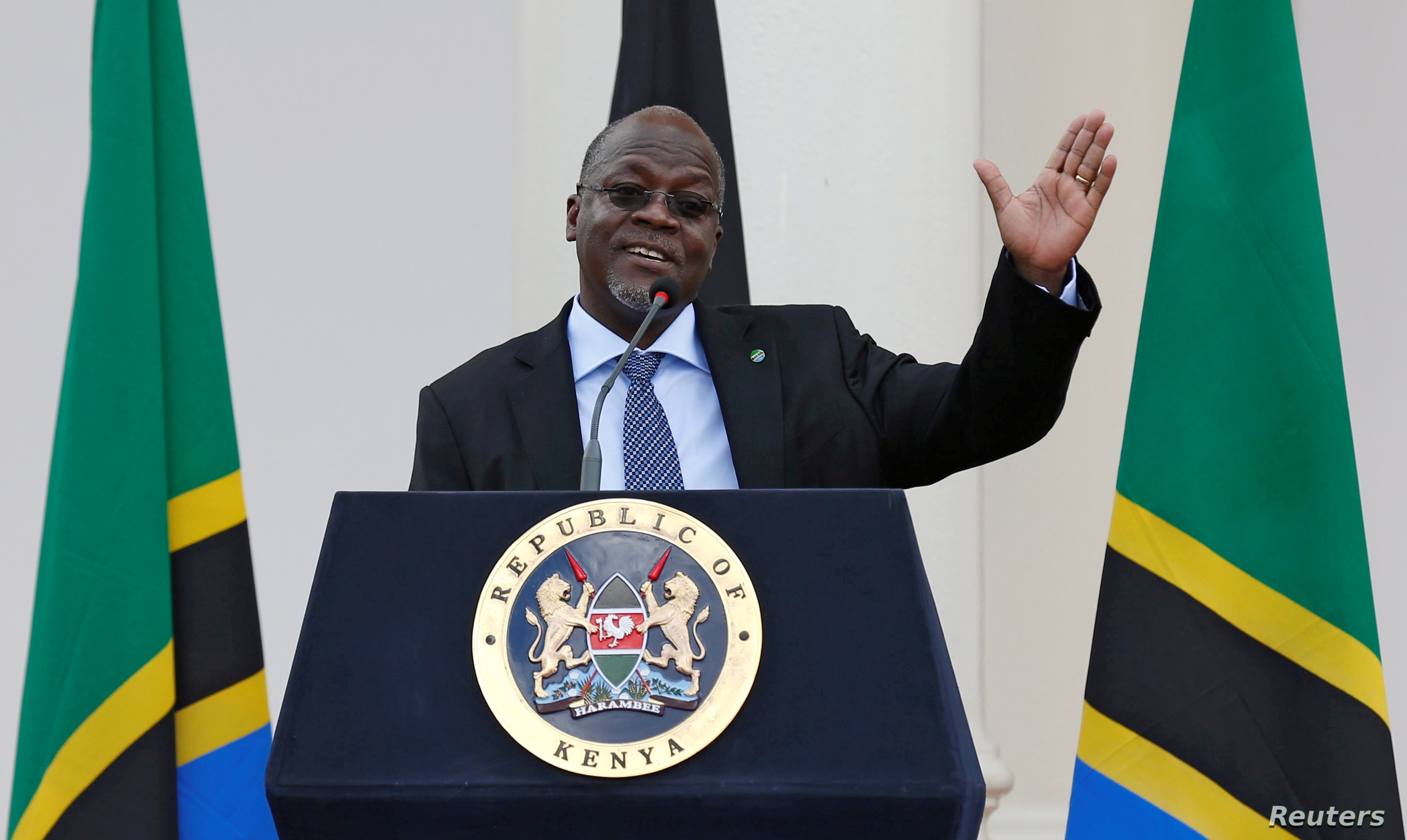
Activists ask Tanzanian president to ease up on restrictions against free speech

Two rights groups are calling on Tanzania’s government to ease restrictions on dissent and freedom of expression imposed since President John Magufuli came to power in 2015.
Amnesty International and Human Rights Watch issued reports on Tanzania at a joint news conference Monday in Kenya’s capital, Nairobi.
“Magufuli’s administration has passed many laws that restrict the work of journalists and intend to repress activities of civil society organizations,” said Roland Ebole, lead researcher for the Amnesty International report. He said the president needs to “carefully reflect on his government’s record of ruthlessly disemboweling the country’s human rights framework.”
Human Rights Watch Africa researcher Oryem Nyeko said upcoming local and general elections will not be fair unless the government takes a different approach to perceived opponents.
“The finding we have that the media and civil society are effectively silenced does not create a good environment for free and fair elections,” he said. “So, we are encouraging and urging the government to ease these restrictions on civil society and the media to amend the restrictive laws.”
VOA contacted Tanzanian officials to comment on the reports, but received no response.
The Amnesty International and Human Rights Watch reports are based on interviews with dozens of journalists, politicians, activists and other observers in Tanzania.
Magufuli came to power in November 2015 promising to fight corruption. Previously, he was known for shutting down companies and firing government workers without due process.
Once in office, he shut down anyone who challenged his authority. In 2016, legislators approved a Magufuli-backed law that gave security agencies the power to search media organizations, seize their equipment and close them without a court order. Since then, the government has used the law to shut down five news outlets.
Muthoki Mumo of the Committee to Protect Journalists — who was arrested in Tanzania in 2018 — says the government cannot root out corruption while oppressing journalists, who are often the ones who report on officials’ misdeeds.
“He came to power with an aggressive anti-corruption agenda,” Mumo said. “But the question that comes up again and again when we do this research: How do you expect to implement this, or how do you expect to achieve these goals when there is no free press?”
According to the rights groups, the government has also banned the gatherings of opposition politicians, and prosecuted some politicians on fabricated charges.
Zitto Kabwe, a parliamentarian representing Kigoma, says the country is going through hard times in relation to human rights abuses.
“Since 2015, many opposition politicians have cases before the court … because of their political stance,” he said Monday. Kabwe is one of them. He was arrested after raising concerns about citizens killed in Kigoma’s Uvinza District.
Journalists in Tanzania are afraid to write independently or publish following the July arrest of investigative journalist Erick Kabendera.
“It is evident that the working environment for journalists in Tanzania is hard,” said Kajubi Mukajanga, secretary general of the Media Council of Tanzania. “The work of a reporter and editor are not responsibilities that anyone can take up easily. Families of editors are living in fear, unsure whether loved ones will return from work or whether their news outlets will be open the following day.”
Kabwe said the world should not keep quiet while Tanzanians are living in fear and suffering.
“The world should not remain silent when Magufuli’s administration is breaking all the tenets of democracy, freedom of speech, freedom of expression, media freedom,” he said Monday.’
Magufuli has been in office for four years and is up for reelection next year.
The post Activists ask Tanzanian president to ease up on restrictions against free speech appeared first on Nile Post.
0 Response to "Activists ask Tanzanian president to ease up on restrictions against free speech"
Post a Comment